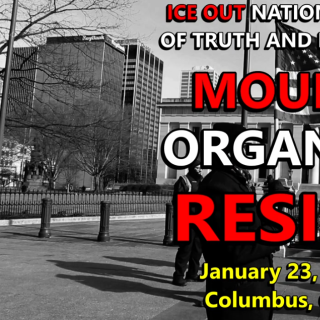May 15th of this year was the 75th anniversary of the Nakba (Arabic for catastrophe) that befell Palestinians when the state of Israel was created, at least 750,000 Palestinians (about 75 percent of the indigenous population) were Israel forcibly exiled and became refugees. Some 530 Palestinians villages and cities were destroyed and by massacres and forced Between 1947 and 1949. About 15,000 Palestinians were killed in a series of mass atrocities, including dozens of massacres.
Throughout the world, human rights activists commemorate this horrible and ongoing event. For the first time, there was a Nabka commemoration at the United Nations. Rashida Tlaib organized a congressional commemoration and introduced a house resolution “Recognizing the ongoing Nakba and Palestine refugees’ rights.” As the founding of their state by the U.N. is celebrated, Israeli law authorizes the Ministry of Finance to impose financial penalties on any organization or body that commemorates Israeli Independence Day as a day of mourning and withdraw their funding or support from the state.
“The denial or suppression of any historical event—especially one as formative and foundational as the Nakba—is simply not a sound basis for policymaking or of peacemaking,” said Khaled Elgindy, senior fellow at the Middle East Institute.
The ongoing Nakba is evidenced by reports in May 2023 that the Israeli military has forcibly transferred the Palestinian residents of the Ein Samiya village, including 78 children (whose school was targeted for demolition). Ein Samiya is in Area C of the West Bank where hundreds of Israeli settlements and outposts, considered illegal under international law, are located. Over the past five years, settler attacks on Ein Samiya have included beatings, rock throwing and attacks on livestock and crops, and there have been more of them. This latest act of political dispossession is only the latest in a larger Israeli program of ethnic cleansing that dates to the establishment of the state in 1948. There are at least 46 villages and communities, home to more than 8,000 Palestinians, that are considered by the United Nations to be at “high risk of forcible transfer due to a ‘relocation’ plan advanced by the Israeli authorities” in Area C of the West Bank. (1)
Also in May, Israeli occupation forces demolished the Palestinian Bedouin village of Al-Araqeeb in the southern Negev region for the 216th time. An estimated 80,000 Bedouin Palestinians, who are citizens of Israel, live in Negev communities that are denied vital services and at risk of demolition. (2)
Palestinians who battled against in Masafer Yatta in Israeli courts are now in imminent danger of forced displacement. The Israeli army plans to forcibly displace more than 1,000 Palestinian residents, including some 500 children, in the Masafer Yatta area of the southern occupied West Bank. Masafer Yatta is a collection of 19 Palestinian hamlets in the southern West Bank. Demolition of Palestinian structures have already started to make way for an unnecessary military firing zone in the entire area. Jubb Al Dhib Elementary School near Bethlehem was demolished in the early hours of May 7th by order of the Jerusalem District Court petitioned by a settler group with no standing in the village. The children returned to school the next day, learning in tents. On May 10th, the Israeli Army returned and confiscated the tents and desks. (4) The Rebuilding Alliance has a campaign to save these villages and you can find out more on their website.
There are probably many more examples that could be named, but these alone demonstrate the urgency for ending the Israel’s illegal occupation of Palestine and the creation of lasting peace so that everyone in the region can live with dignity, security and human rights.
- ‘War crime’: Israel forcibly transfers Palestinian village | Israel-Palestine conflict | Al Jazeera.
- https://www.middleeastmonitor.com/20230502-israel-demolishes-palestinian-village-of-al-araqeeb-for-216th-time/.
- https://www.aljazeera.com/news/2023/1/4/palestinian-villagers-masafer-yatta-face-immediate-expulsion-explainer
- Rebuilding Alliance.



